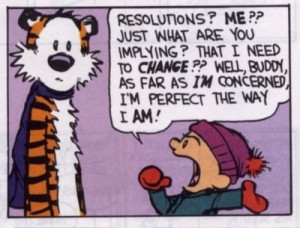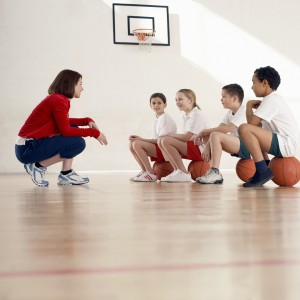conference EFL eikaiwa language courses Language learning online resources presentations self-study technology TED theory
by sendaiben
2 comments
The future of online language learning and translation
This video is really interesting and a little scary. I’m going to have to start polishing my resume.
EFL eikaiwa ES extensive reading kids language courses Language learning materials Penguin Kids Readers readers Reading Review reviews school management teaching
by sendaiben
4 comments
Penguin Kids Readers
Resuming our kids’ readers roundup after a brief hiatus 🙂
I received a set of these a couple of weeks ago from the publisher (thanks!). While I appreciate the gesture, it will not affect how I review them here.
Having said that, this is a fantastic new series that has a lot going for it. There are currently 23 readers over six levels of difficulty.
Level 1 (200 headwords)
Level 2 (400 headwords)
Level 3 (600 headwords)
Level 4 (800 headwords)
Level 5 (1000 headwords)
Level 6 (1200 headwords)
As you can see, the jump between levels is fairly minimal, something that is extremely important for beginner and younger readers.
The current titles are all based on Disney films, and the artwork and covers are beautiful. The writing isn’t bad, either, in that the books actually tell coherent stories. That is often a problem with low-level readers based on films or TV content -they try to fit in too much with a minimal wordlist so the stories end up not making sense. Luckily that is not the case here. In many of the books they have taken just one scene from a film and told that. Our students found the books really attractive due to the topics, but there was enough of a spread that they had not seen all of the movies featured.
Another thing I liked were the simple exercises in the back of the books. They have pre-reading and post-reading questions that are visual and fairly easy -perfect to do in class after reading or to check out of class reading. If anything, I would have liked to see this section be slightly longer.
Apparently the series will end up having twelve books at each level, and there will be different content in the next wave of books (ie not just Disney).
Overall, this is a fantastic new resource. We ended up ordering two more sets, and I’m really looking forward to the release of the rest of the books in this series.
curriculum EFL evaluation expectations language courses Language learning teaching testing university
by sendaiben
leave a comment
New (Academic) Year’s Resolutions
Now that we are two three months into 2010 2012 (can you tell when I started writing this post?), it seems like a good time to think about new year resolutions. I didn’t make any specific ones this year, but I would like to make some for the next academic year.
In Japan the academic year runs from April to March, and at universities at least classes finish in February, allowing teachers some much-needed downtime to do admin, write papers, and think about next year’s classes.
So what am I going to focus on next year?
One of my priorities as a teacher and learner is effectiveness, or maximising results. I want to continue making my classes as effective as possible. I define effectiveness as the amount of learning over a certain time.
For my university classes, I am working off the following assumptions:
1. my students have already studied enough grammar
2. we only have a maximum of 22 hours together
3. my students actually want to learn English
4. most of my students don’t know how to get better at English
5. there are things I can teach my students that will help them improve their English
6. tests and quizzes, while very useful for assigning letter grades, are not very helpful
I am going to be teaching the following classes next year:
Reading
Communication
Listening
Presentation
I have already submitted my syllabi and know more or less what we are going to be doing, but I would be very interested to hear any advice or ideas about what I should do in each of these. I’ll be posting the contents later in the week. Please comment below.
curriculum EFL eikaiwa ES evaluation expectations kids language courses Language learning school management teaching testing theory university
by sendaiben
2 comments
English teachers aren’t really teachers, are they?
This is something I have been thinking about for a while now.
I was just drafting this post when I saw this link by Steve ‘the Linguist’ Kaufmann (NB: I started writing this post three months ago).
I’m not sure that we EFL teachers are actually teachers.
After all, we are in charge of helping learners become proficient in a language. I see this as a skill to be practiced rather than a set of knowledge to be taught. I have always compared language learning to sports, and described what learners should be doing in terms of practice and training. The sports analogy seems to work very well:
1. some people are naturally better at sports/languages than others
2. anyone can get better at sports /languages through practice
3. formally studying sports/languages is of limited use on its own, although it can help if done in conjunction with practice
4. being good at one sport/language will often help you with another one
5. if you want to get better at a sport/language, you should aim to do meaningful practice every day
6. training equipment will help you improve at a sport/language, but is no substitute for practice
7. drills can be helpful, but you also need to practice under realistic conditions if you want to get better at a sport/language
You can probably make similar analogies to playing a musical instrument, or producing art.
The point is, if we are coaches rather than teachers, don’t we need to re-examine our teaching situation?
Are formal classes, exams, class assignments, and grades appropriate ways to help our students master the skill of English language use (as opposed to the academic equivalent knowledge), or are they actually counter-productive?
Now, most of us are restrained by our work situations: we can’t abolish classes or grades, but perhaps there is some way we can change our classes to make them more practical. I’ll be thinking about that in the new academic year, starting in April here in Japan.
curriculum EFL expectations extensive listening language courses Language learning listening teaching theory
by sendaiben
leave a comment
Listening and taking notes: harder than just listening?
I’ve been meaning to write something about this for a couple of weeks months now.
I started doing listening exercises this year in my university reading classes. Students listen to graded reader CDs as a class while taking notes, then talk in groups checking their understanding, and finally write a short summary of what they heard.
So far we’ve been doing short (two three minute) sections of level two reader CDs. These are texts that my students would be able to read easily, but they have trouble following it as audio. I presume this is because most high school students rarely if at all practice listening for more than a single sentence or short dialogue.
The feedback so far has been pretty good, with most students finding the practice interesting, challenging, and useful. They also appreciate the chance to practice listening, speaking, and writing in a short time.
However, there was one thing that came up that really surprised me. Many of the students have mentioned in feedback that they find it much harder to listen and take notes at the same time. I had assumed that taking notes would help them focus, but it seems that for a substantial minority this is not the case.
After receiving this feedback I allowed the students to take notes or not in the following class, and that seems to have solved the problem.
Does anyone have any similar experiences or articles/theories that address this? It was fairly counterintuitive to me, although I guess it makes sense that the increased mental load of having to filter the content to take notes would make it harder to actually process the language…



